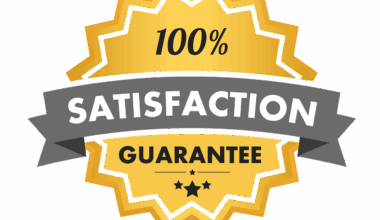Corporate Governance and Ethics in Small Enterprises
Corporate governance and ethics play a pivotal role in small businesses, influencing their operational efficiency and reputation in the marketplace. In smaller enterprises, ethical practices foster trust and loyalty among customers and employees alike. A commitment to ethical principles allows small businesses to differentiate themselves in competitive markets. Additionally, implementing strong governance structures can help ensure compliance with laws and regulations, reducing the risk of legal penalties. Regardless of size, companies must create an ethical culture that emphasizes integrity, transparency, and accountability. Such a culture not only benefits firms internally but also positively affects external stakeholders. As small businesses face unique challenges, ethical dilemmas can arise regarding fair practices, employee treatment, and customer relations. This necessity for ethical vigilance leads to better decision-making processes and enhances stakeholder value. Investors, customers, and suppliers increasingly prefer to engage with companies that demonstrate a commitment to ethical behavior. Ultimately, adopting effective corporate governance frameworks allows small enterprises to mitigate risks and maximize their growth potential by aligning their operations with ethical standards and practices in their respective industries, establishing solid foundations for future success.
The Importance of Ethical Practices
Ethical practices are fundamental in small business operations, guiding decision-making and behavior. Small enterprises often operate within tight-knit communities, making their ethical stances even more significant Shaping the local reputation hinges on trustworthiness. Ethics govern how businesses treat customers, suppliers, and employees, contributing to long-term relationships and sustainable success. Small businesses can significantly impact their communities by prioritizing fairness, transparency, and accountability. Building strong relationships through ethical engagements can lead to increased customer loyalty and support from stakeholders. Furthermore, an ethical reputation can attract talented employees who prioritize moral integrity and seek an environment promoting ethical values. Small businesses thriving on solid ethical foundations are more likely to experience customer retention and repeat business, driving profitability and growth. For example, engaging in fair pricing and honest advertising cultivates a positive business image. Moreover, small enterprises can learn from corporate governance models adopted by larger organizations by tailoring them to fit smaller scales, thus enhancing ethical accountability. This adaptability enables them to maintain integrity while navigating complex business landscapes. Ultimately, commitment to ethical practices becomes a driving force for innovation, employee satisfaction, and overall business performance.
Creating transparent policies and procedures is essential for guiding small businesses toward ethical practices. By implementing clear guidelines related to conduct, decision-making, and accountability, companies can foster an ethical culture that resonates with employees. Training and awareness programs can ensure that employees understand the importance of these policies and feel equipped to act ethically at all times. It is crucial to involve employees in the development of such policies; their insights can lead to more relevant and effective guidelines. Transparency is vital in enhancing trust and accountability in small businesses. Businesses should openly communicate their values and ethical standards to employees and stakeholders. In doing so, they can set clear expectations for behavior within the organization. Additionally, businesses should encourage reporting unethical actions, providing channels for whistleblowers, ensuring protection against retaliation. Regular reviews and updates of ethical policies can help small businesses adapt to the changing regulatory landscape, making continuous improvement a priority. By incorporating feedback and evolving frameworks, companies can reinforce their commitment to ethical practices at all levels, resulting in a more responsible and sustainable operation that aligns with best practices in governance.
The Role of Leadership in Promoting Ethics
Effective leadership is essential in promoting ethics within small enterprises. Leaders set the tone for expected behavior and moral standards. Their actions and attitudes profoundly impact the ethical culture of the organization. By molding an environment of integrity and fairness, leaders inspire employees to act ethically. Consistent communication about the importance of ethics in everyday operations can reinforce this culture. Furthermore, when leaders demonstrate ethical behavior, they serve as powerful role models for employees. Establishing standards of conduct and ethical expectations begins at the top. Rewards and recognition for ethical behavior support the continued development of an ethical workplace. Leaders should engage in open discussions about ethical challenges, openly addressing scenarios that may create dilemmas. This practice encourages critical thinking, allowing employees to develop their moral reasoning and decision-making skills. Additionally, fostering a culture where every voice matters enables employees to express concerns or suggest improvements regarding ethical issues. When employees feel empowered, they are more likely to actively participate in upholding the company’s ethical standards, ultimately benefiting the organization as a whole. Through strong leadership and commitment to ethics, small enterprises can build solid foundations for long-term success.
The significance of stakeholder engagement in small businesses cannot be overstated when considering corporate governance and ethics. Active dialogue with stakeholders—customers, suppliers, employees, and the community—ensures that businesses remain accountable for their actions. Engaging stakeholders in discussions regarding ethical dilemmas can provide diverse perspectives, fostering a more inclusive approach to decision-making. For instance, incorporating customer feedback can improve transparency and trust within the business. Furthermore, engaging with suppliers on ethical sourcing practices can promote sustainability and fair labor conditions. Regularly gathering input from employees enhances workplace morale and fosters a sense of ownership regarding ethical practices. Additionally, businesses can adopt community outreach initiatives that demonstrate their commitment to ethical behavior, positively impacting their public image. Engaging with stakeholders allows small enterprises to develop a shared understanding of ethical expectations. Ensuring that stakeholder concerns are addressed contributes to a proactive approach in implementing ethical practices throughout the organization. Ultimately, fostering meaningful connections with stakeholders can enhance corporate governance, enabling small enterprises to navigate complex ethical landscapes while contributing to broader societal goals in sustainable ways.
Challenges in Ethical Decision-Making
Small businesses often face challenges when confronted with ethical decision-making factors, including resource limitations, competition concerns, and varying stakeholder expectations. The pressure to maintain profitability can sometimes lead to compromised ethical standards, with businesses prioritizing short-term gains over long-term ethical considerations. Adopting strict ethical policies can initially appear burdensome, particularly for small teams that may feel overwhelmed. Additionally, ethical dilemmas may become thorny when stakeholders hold conflicting values or perspectives on what constitutes ethical behavior. Navigating these complexities requires robust decision-making frameworks that emphasize ethical considerations. Small businesses can benefit from developing internal resources that focus on ethical decision-making processes. Ultimately, clear criteria should aid leaders in evaluating scenarios critically, balancing profitability and ethical integrity. Moreover, seeking guidance from external resources, such as industry associations or ethics consultants, can help navigate these challenges effectively. Encouraging collaborative problem-solving among employees can also generate creative solutions that satisfy differing ethical perspectives. By actively engaging with these challenges, small enterprises can reinforce their commitment to ethics, ensuring that ethical considerations prevail even during trying times in the evolving business landscape.
Continuous improvement and ongoing evaluation of ethics within small businesses lead to sustainable practices and responsible governance. Regular assessments of policies, procedures, and practices are essential to identify areas for enhancement. By engaging employees and stakeholders in these evaluations, businesses can gather valuable feedback and learn from real-world experiences. Additionally, establishing key performance indicators (KPIs) can help track the effectiveness of ethical initiatives over time. For example, monitoring employee satisfaction, customer reviews, and compliance with ethical standards can inform whether the desired culture is achieved. Businesses that prioritize continuous improvement create a culture of accountability and innovation, where ethical practices are not just stagnant requirements but evolve with changing circumstances. Transparency about the latest evaluation findings and adapting practices based on them fosters trust among stakeholders. Encouraging a growth mindset concerning ethics can motivate employees to engage actively with ethical expectations and contribute to ongoing enhancement. Furthermore, taking the initiative to participate in industry benchmarking allows small businesses to identify best practices to incorporate. Continuous evaluation and adaptation cement small enterprises as leaders in corporate governance and ethics, benefiting their employees, communities, and industries at large.





